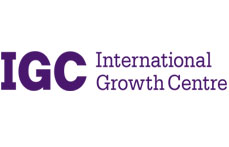 The Duke GVC Center partnered with the International Growth Centre to analyze three value chains in Rwanda and Uganda: dairy processing, maize and tourism. The objective of the study was to identify areas where regional integration could strengthen the chain.
The Duke GVC Center partnered with the International Growth Centre to analyze three value chains in Rwanda and Uganda: dairy processing, maize and tourism. The objective of the study was to identify areas where regional integration could strengthen the chain.
Tourism is an important economic driver in Africa. East African Community countries such as Kenya and Tanzania have long been popular safari destinations, with Rwanda and Uganda serving as stops as part of the “Gorilla Express”. As both countries look to diversify their appeal, value chain analysis can provide insight into how domestic businesses can connect with global actors to facilitate upgrading.
While the global industry is increasingly focused on ethanol production, maize in East Africa is an important food crop. With Kenya serving as significant processor, Ugandan—and Rwandan, to a lesser—producers can play a valuable role in the regional value chain.
Although regional dairy trade in East Africa is far lower than the global average and only stands at below 1% of regional milk production, its recent rapid growth is promising. The way forward for dairy value chains in Rwanda and Uganda is contingent upon addressing the gap in ‘intangible’ capabilities.
Despite recent regional improvements in poverty reduction and economic growth rates in East Africa, firm productivity in the region remains low. This contrast creates uncertainty about whether the recent successes will persist without improvements in regional networks of production and trade. In partnership with the IGC, the Duke research team used the GVC framework to investigate the opportunities for and constraints to regional integration in three key sectors: dairy processing, maize production, and tourism.